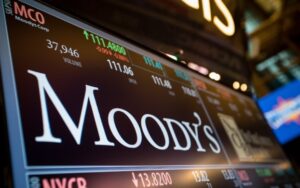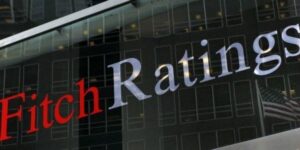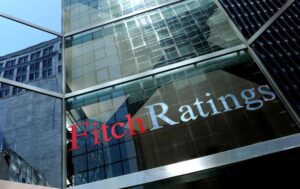
President of Ukraine Volodymyr Zelensky, volunteer Serhiy Prytula and advisor to the head of the presidential office Mykhaylo Podolyak top the list of politicians and public figures trusted by Ukrainians, according to results of a poll conducted by the Razumkov Center polling service from 22 February to 1 March 2023 as part of the MATRA program financed by the Dutch Embassy in Ukraine.
According to a press release with the results of the survey, which was released on Wednesday, 85% of respondents trust V. Zelensky, S. Pritula – 65% and M. Podolyak – 59.5%.
More than half of Ukrainians trust also Kiev mayor Vitaliy Klitschko (58% of respondents), the Secretary of the National Security and Defense Council of Ukraine Oleksiy Danilov (55%), Prime Minister Denis Shmygal (52%), and Defense Minister Oleksiy Reznikov (51%).
More often trust than distrust were expressed by the Head of the President’s Office Andriy Ermak (41% and 36% respectively), the Speaker of the Verkhovna Rada Ruslan Stefanchuk (35% and 27% respectively), activist and volunteer Sergei Sternenko (29% and 18% respectively), the Minister of Internal Affairs Igor Klimenko (27% and 17% respectively).
The majority of respondents do not trust MPs Yuri Boiko (82%) and Yulia Tymoshenko (76%), the fifth President of Ukraine, MP Petro Poroshenko (65%), former presidential advisor Oleksiy Arestovych (59%). The head of the parliamentary faction “Servant of the People” David Arahamia is also expressed more often in distrust than trust (39% and 27% respectively).
“Compared to 2021, the share of those who trust V. Zelenski (from 33% to 85%), S. Pritula (from 22% to 65%), V. Klitschko (from 26% to 58%), A. Danilov (from 12% to 55%), D. Shmygal (from 11% to 52%), A. Yermak (from 10% to 41%), S. Sternenko (from 15% to 29%) and P. Poroshenko (from 18% to 24%) increased. During the same period the percentage of those who trust Y. Boiko (from 18% to 6%) and Y. Tymoshenko (from 20% to 13%) decreased,” sociologists concluded.
The survey was conducted by the sociological service of the Razumkov Center from February 22 to March 1, 2023 in the framework of the MATRA program, funded by the Dutch Embassy in Ukraine in 22 regions of Ukraine and in Kyiv (the survey was not conducted in Lugansk and Donetsk regions, in the ARC and Sevastopol, and in Zaporozhye, Nikolayev, Kharkiv and Kherson regions – the study was conducted only on the territories controlled by the government of Ukraine and on which no military operations are conducted).
As part of the face-to-face survey, 2,020 respondents aged 18 years and older were interviewed. The theoretical sampling error does not exceed 2.3%.

International rating agency Moody’s Investors Service has changed its outlook for the U.S. banking system to “negative” from “stable,” the agency said in a statement.
The decision follows “a rapidly deteriorating operating environment” following the bankruptcies of Silicon Valley Bank, Signature Bank and Silvergate Bank.
“Although the Treasury Department, the Fed and the Federal Deposit Insurance Corporation have announced that all SVB and Signature Bank depositors will receive full compensation, the rapid and significant decline in depositor and investor confidence underscores the asset-liability management risks among U.S. banks, which are exacerbated by rising interest rates,” the press release said.

International rating agency Fitch Ratings has affirmed Ukraine’s Long-term foreign currency Issuer Default Rating (IDR) at “CC”, the agency said in a statement on its website.
“The affirmation of Ukraine’s ‘CC’ long-term foreign currency IDR reflects Fitch’s view on the likely further restructuring of its commercial debt in foreign currency, given the scale of economic damage from the war with Russia and the significant financial damage associated with it,” the agency explains its decision.
Fitch believes that burden sharing with commercial creditors is a likely condition for large financial assistance provided by international official creditors.
The agency notes that a 24-month grace period on Ukraine’s Eurobonds, reached in August 2022, provided relief on servicing Ukraine’s $6 bln external debt, but leaves unresolved medium-term debt sustainability risks. It estimates that sovereign foreign debt service will rise to a relatively high level of $5.4 billion in 2024 (excluding $3.5 billion of deferred interest payments on Eurobonds that can be capitalized) and $7.0 billion in 2025, laying the groundwork for a possible new restructuring.
Fitch forecasts Ukrainian GDP growth of 2% in 2023, as the ongoing war prevents the return of significant numbers of refugees or large-scale investment, and power outages following Russian shelling create an additional constraint. The agency recalls a GDP decline of about 31 percent in 2022 and a net outflow of 8 million people, according to the UN, while pointing to a possible overstatement.
The agency predicts that inflation will fall to 21% in 2023 from 26.6% in 2022 as lost production capacity, power shortages, and only gradual elimination of supply chain disruptions offset weak domestic demand.
Fitch expects the war to continue in 2023 within its current broad parameters, as there are no politically credible concessions in the near future that could form the basis of a negotiated settlement. The agency believes that President Putin’s goal remains to undermine the sovereign integrity of the Ukrainian state, while Ukraine’s successful counterattacks in Kherson and Kharkiv make it even less likely that it will cede its territory to Russia.
According to Fitch, although the strategic advantage has shifted more in favor of Ukraine in recent months, neither side appears to have a decisive military advantage to achieve the objectives that could lead to a protracted conflict. “Over a longer period, the prospect of a negotiated settlement becomes more likely as the costs to both sides increase, although this may well take the form of a ‘frozen conflict’ rather than a sustainable peace,” Fitch admits.
Fitch forecasts the deficit to shrink to 15.2% of GDP in 2023 from 20.1% of GDP in 2022 because of the partial implementation of budgeted cuts in real terms to social spending and slightly higher grants, but defense spending remains well above the government’s target. “We expect high deficits in the medium term due to reconstruction needs, increased social spending, including on war veterans, and increased prewar defense spending,” the agency adds.
Fitch also estimates a 37 percentage point (pp) increase in total government debt to GDP in 2022 to 80.2% (excluding government guarantees of 7.5% of GDP) and forecasts it will rise to 84.0% by the end of 2023. It adds that the share of government debt in foreign currency has risen to 66%, which has increased currency risks, although the share of long-term concessional debt has also increased.
The agency expects the goal of raising $38bn in external budget funding in 2023 to be fully achieved, and the local currency public domestic debt rollover ratio, which fell to 65% in 2022, will partially recover this year thanks to recent changes in reserve requirements, further growth in government bond yields and the current record high level of bank liquidity, which will reduce the National Bank financing of the state budget deficit.
“Little is currently known about sources of funding beyond this year’s end due to risks associated with potential donor fatigue, increased stress in the banking sector weakening demand for domestic debt, and restrictions on the use of NBU fiscal funding if inflation remains high and external financing pressures resume,” Fitch notes/
It adds that the size of capital outflows from the private sector remains relatively stable, restrained by capital controls, and international reserves stood at $28.5bn at the end of 2022, up from $27.6bn at the end of February. Fitch forecasts that the current account surplus will shrink to 2.6% of GDP this year amid higher import growth, and international reserves will be 3.8 months of current external receipts at the end of 2023, down from 4.0 months at the end of 2022.
The local currency IDRs are affirmed at “CCC-“: the lower default risk than for foreign currency debt reflects a greater barrier to including local currency debt in any further debt restructuring, given that non-residents hold only 5%, while 55% is held by the NBU and another 32% by the domestic banking sector (half owned by the state), for which financial stability risks may be associated.
“We also do not expect strong international pressure to restructure domestic debt, partly because of additional concerns that this could undermine efforts to revive demand for new government debt issuance,” Fitch said.

December 23, 2022 Expert-Rating RA rating committee decided to suspend the financial stability (reliability) rating of insurer PJSC Insurance Company “Alfa Insurance” (Kiev), according to the website of RA.
It also noted that the rating may be restored if the license of the company will be renewed.
As reported, the National Bank of Ukraine on December 5, 2022 has applied to PJSC IC “Alfa Insurance” a measure of influence in the form of temporary suspension of license to provide financial services.
The NBU also noted that these measures were applied in connection with the company’s non-compliance with the requirements of the Regulations on licensing and registration of financial service providers and their conditions of operation in the provision of financial services …, namely requirements for business reputation of financial service providers. The company must eliminate the violations by December 5, 2023.
Later, the Motor (Transport) Insurance Bureau of Ukraine reported on its website that due to the temporary suspension of a license of IC “Alfa Insurance” on compulsory insurance of civil liability of owners of vehicles (MTPL), it lost the right to enter into new contracts.
Earlier, it was reported that the last update of the financial stability rating (credit rating) of IC “Alfa Insurance” by RA “Standard-Rating” was performed on November, 2 2022 at the level uaAA+, according to the results of the 9 months of this year.
In the first three quarters of 2022 the company has collected UAH 719,327 mln of gross premiums that is by 32,97% less than in the same period of 2021. Net premiums have decreased by 32,75% down to UAH 711,449 mln, and earned premiums – by 16,23% down to UAH 849,317 mln.
The volume of indemnities paid out by IC “Alfa Insurance”, has decreased by 11,68% down to UAH 258,439 mln in the first nine months of 2022 comparing to the same period of 2021. Given the large rates of gross premiums decrease in comparison with insurance reimbursements, the level of payments has grown by 8,66 p.p. up to 35,93%.
The financial result from operating activities has grown in 3,77 times compared to the three quarters of 2021, and the net profit has increased in 4,09 times up to UAH 126,472 mln.
As reported, IC “Alfa Insurance” was founded in 2000. It offers a universal portfolio of services, including comprehensive programs to protect the interests of business and a wide range of insurance products for individuals.

State-owned PrivatBank and Oschadbank topped the list of 43 profitable banks in August with net profits of UAH 3.21 billion and UAH 2.85 billion, respectively.
According to the data published by the National Bank of Ukraine on its website, they worked with a profit despite the formation of an additional UAH 7.71 billion and UAH 0.62 billion in reserves, respectively.
The main reason for such a significant profit of both state-owned banks was the result obtained in August from operations with financial assets and liabilities – UAH 7.49 billion and UAH 2.95 billion, respectively.
In addition, in August, PrivatBank showed an increase in total assets by UAH 14.95 billion, and Oschadbank – by UAH 8.22 billion, while the assets of the state-owned Ukreximbank immediately decreased by UAH 31.23 billion, which is probably due to the government receiving through it part of external financing and its spending.
Among other leaders in terms of profit in August were UkrSibbank – UAH 625.0 million, Citibank – UAH 444.4 million, Raiffeisen Bank – UAH 267.7 million, Universal Bank (monobank) – UAH 210.7 million, Ukrgasbank – UAH 143.0 UAH million and OTP Bank – UAH 131.4 million.
Alfa-Bank and the state-owned Ukreximbank showed the largest losses in August – UAH 1.357 billion and UAH 1.103 billion, respectively. During the month, these banks formed additional reserves of UAH 1.674 billion and UAH 0.776 billion, respectively. In addition, Alfa-Bank lost another UAH 1.51 billion of total assets in August.
Credit-Dnepr Bank – UAH 181.8 million, Idea Bank – UAH 110.7 million, Globus Bank and Kredobank – UAH 87 million and UAH 86 million, respectively, were also unprofitable.
According to the results of eight months of this year, PrivatBank remains the most profitable – UAH 14.15 billion, and Oschadbank took the second place due to the August result – UAH 2.34 billion.
Next come three banks with foreign capital: Raiffeisen Bank – UAH 1.87 billion, UkrSibbank – UAH 1.7 billion and Citibank – UAH 1.12 billion, followed by two private Ukrainian banks: Universal Bank – UAH 0.65 billion and Bank “Pivdenny” – UAH 0.34 billion.
The largest losses in January-August were shown by Alfa-Bank – UAH 4.88 billion and two state-owned banks: Ukreximbank – UAH 4.41 billion and Ukrgasbank – UAH 3.40 billion.
Rounding out the top five unprofitable are two banks with foreign capital: ProCredit Bank – UAH 1.29 billion and OTP Bank – UAH 0.44 billion.
In general, over the eight months of this year, 42 banks operated with a net profit, while 25 – with a net loss.
The total net profit of all banks amounted to UAH 8.43 billion, including UAH 5.1 billion in August, but excluding PrivatBank and Oschadbank, the financial result of the banking system will be negative – UAH 8.05 billion and UAH 0.95 billion, respectively.
According to the data of the National Bank, in August, the portfolios of government bonds of all banks decreased, most of all – Oschadbank: by UAH 3.05 billion, while Universal Bank – by UAH 1.99 billion, FUIB – by UAH 1.73 billion. In total, the banking portfolio of government bonds in August decreased by UAH 23.83 billion.

The international rating agency Fitch Ratings has affirmed the long-term issuer default rating (IDR) in foreign and national currencies and the senior unsecured rating of Metinvest Mining and Metallurgical Group at ‘ССС’, the recovery rating is ‘RR4’.
“Metinvest’s ratings reflect the company’s sufficient funding over the next six months, supported by cash flow generation from its international asset base, few significant short-term maturities and existing cash position. This also reflects increased operational risk for the company following the military invasion Russia to Ukraine, including the occupation or damage of some of its assets, as well as severe logistical restrictions,” Fitch explained in a press release on Tuesday.
At the same time, it is noted that about a third of the company’s EBITDA in 2022 will be generated by its international assets.
The ‘CCC’ rating reflects Metinvest’s increased operational and financial risks. Ferrexpo plc has a higher ‘CCC+’ rating due to its lack of financial debt. Metinvest’s business profile benefits from upstream assets outside of Ukraine, maintaining its rating above Interpipe Holdings plc (CCC-), whose assets are wholly concentrated in Ukraine,” the agency explains.
Analysts predict that Metinvest’s sales will be around 50% of 2022 levels, with a gradual recovery between 2023 and 2025.
In addition, experts suggest that Metinvest will be considered an operating company in the event of bankruptcy and will be reorganized, but not liquidated.
According to analysts, Metinvest has limited liquidity: the company keeps most of its cash in offshore zones. The company continues to generate significant cash flows from its coal assets in the US, as well as its steel mills in Europe, and its iron ore and steel assets in Ukraine. This has helped offset the outflow of working capital in recent months.
Metinvest has minor upcoming maturities in 2022: its next significant maturity is $176 million due in April 2023 in connection with the redemption of its bonds, according to a press release.
As Yury Ryzhenkov, general director of Metinvest, said, the company is servicing its credit obligations, including Eurobonds, and intends to continue doing so in the future.
“We have not declared force majeure on debt. Unlike many Ukrainian issuers, we continue to service our entire loan portfolio, including planned payments on Eurobonds. And I think that we should have enough strength to do this,” he said. he.
Metinvest is a vertically integrated group of mining and metallurgical enterprises. Its enterprises are located in Ukraine – in Donetsk, Lugansk, Zaporozhye and Dnepropetrovsk regions, in European countries. In particular, in Bulgaria there is a Promet Steel plant with a capacity of 500 thousand tons of rolled metal per year, in Italy – Metinvest Trametal and Ferriera Valsider with a total capacity of 1.2 million tons per year. In the UK, the company owns the Spartan UK plant, which can produce 200 thousand tons of rolled steel per year.
The main shareholders of the holding are the SKM group (71.24%) and Smart Holding (23.76%), which jointly manage it.
Metinvest Holding LLC is the management company of the Metinvest group.
© 2016-2025, Open4Business. All rights reserved.
All news and diagrams placed on this Web site is made for internal use. Its reproduction or distribution in any form are welcome in case of placing a direct hyperlink to a source. Reproduction or distribution of information which contains Interfax-Ukraine as a source is prohibited without the written permission from the Interfax-Ukraine news agency. Photoes placed on this site are taken from open sources only; rightholder are welcome to make demands to info@open4business.com.ua , in this case we are ready to put your copyright to a photo or replace it.